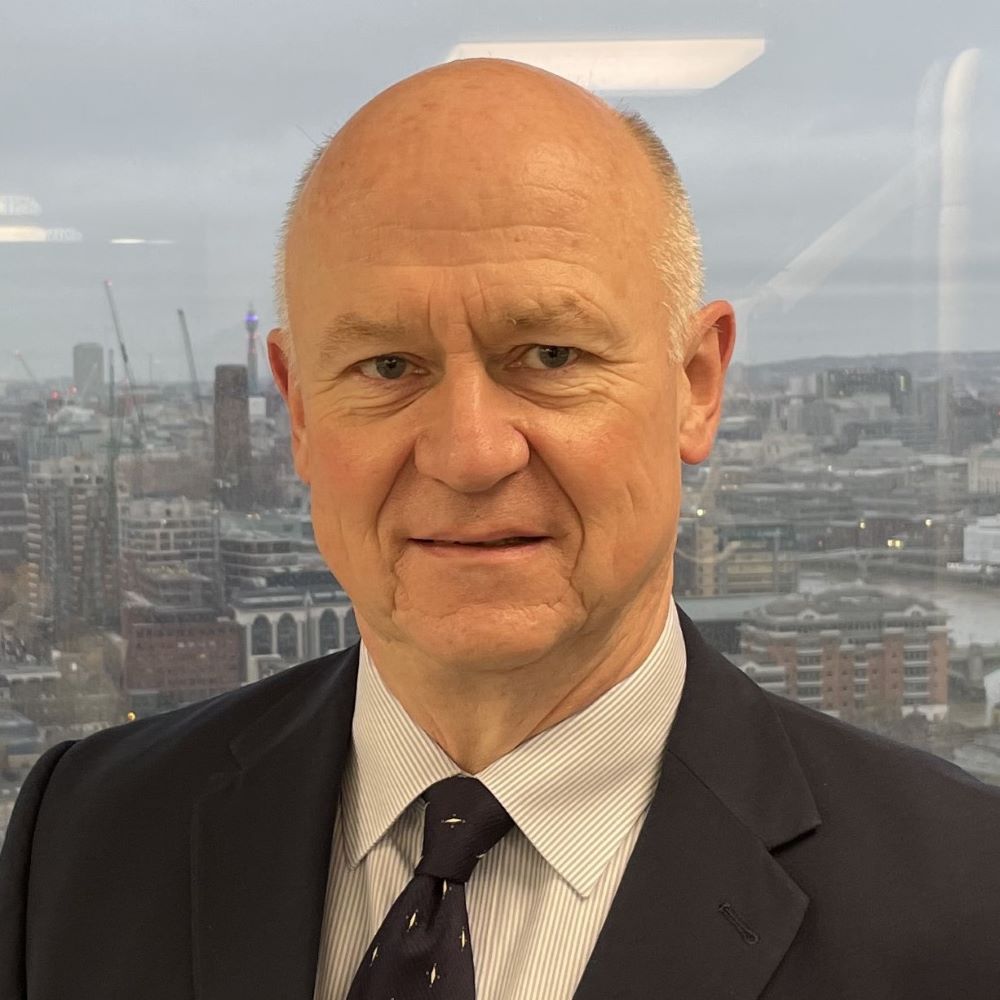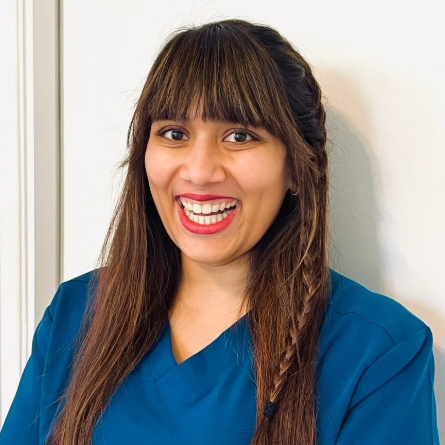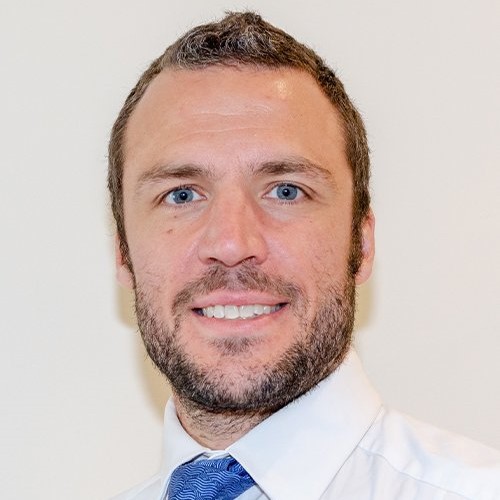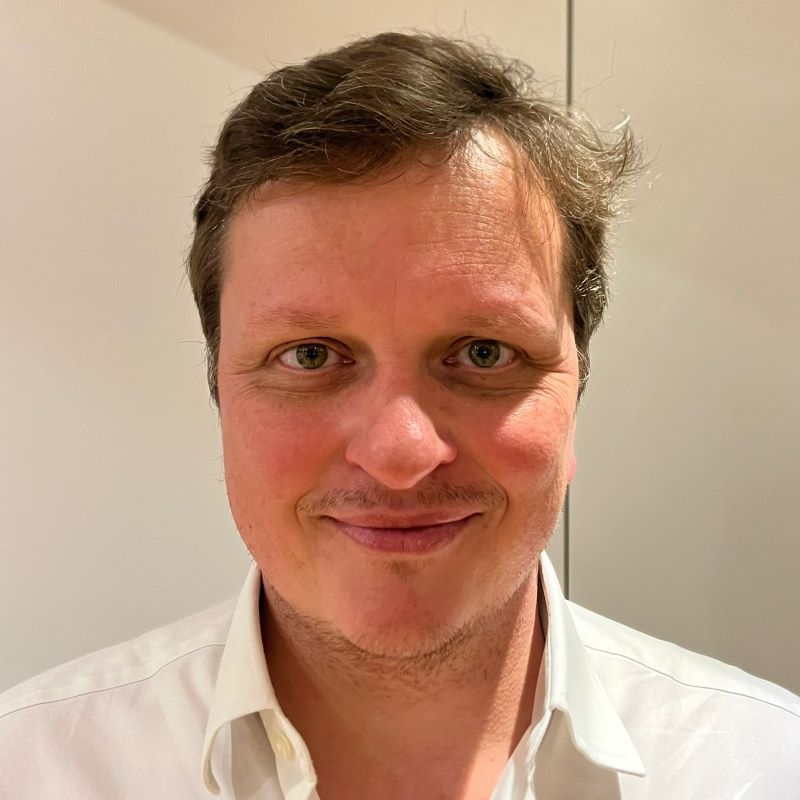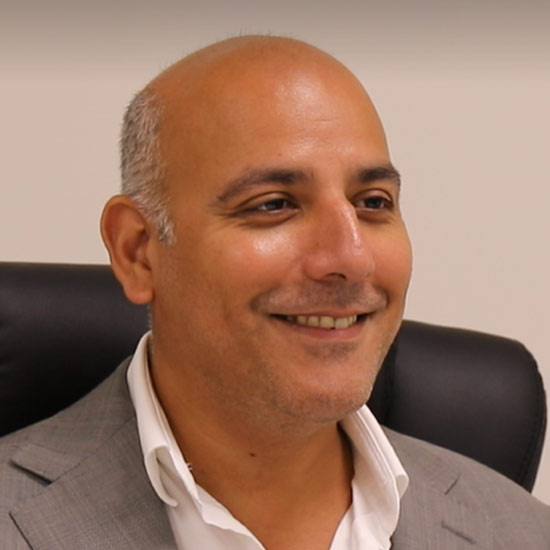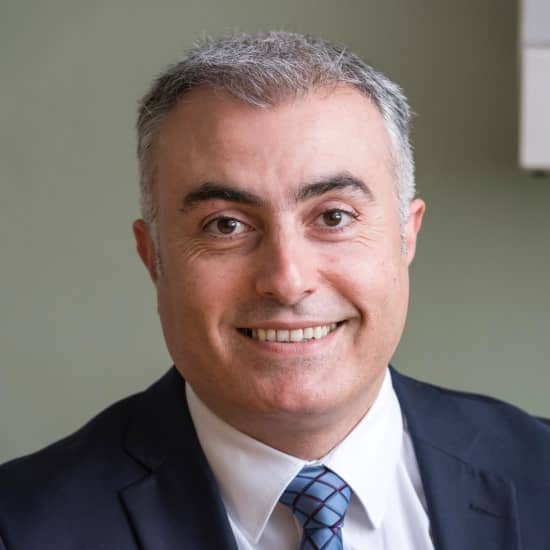Head and neck cancer care
We are one of the UK's leading private hospitals for the treatment of head and neck cancer – a relatively common type of cancer with around 12,000 cases annually.
Why choose us?
Leading head and neck care
We treat more cases of head and neck cancer than any other private hospital in the UK.
World-class experts
Our highly experienced head and neck team contains some of the UK's most sought-after specialists.
Advanced treatments
Including cutting-edge robotic surgery, which provides a less invasive treatment option for suitable patients.
Multidisciplinary care
Our team of specialists will support and guide you throughout every step of your journey with us.
No waiting list
You'll have seamless and rapid access to any appointments, tests, and treatment you may need .
About head and neck care
As a leading cancer hospital in London, Cromwell Hospital provides one of the UK's most comprehensive private head and neck cancer services, with holistic world-class care delivered by a team of multidisciplinary specialists within our Integrated Cancer Campus. We take cancer care seriously and we understand the impact it can have on people’s lives – thus, we ensure a holistic approach to care is always adopted.
We put our patients at the heart of quality care and excellence, and we work effectively as a multidisciplinary team to deliver high quality care and compassion.
One in every 75 men and one in every 150 women in the UK will be diagnosed with oral cancer at some point in their lives. Many patients get a late diagnosis because they fail to see the appropriate specialist at an early stage. The earlier you get diagnosed, the better your chances are of being cured.
If oral cancer is caught within the early stages, our multidisciplinary head and neck specialists will work together with oral medicine consultants to devise a suitable treatment plan for white patch dysplasias or pre-cancers. In order to eliminate these lesions safely and limit their chance of developing into cancer, our head and neck consultants treat them using laser surgery.
Speech, swallowing, eating, and breathing are all significant aspects of quality of life that can be affected by oral cancer and its treatment. At Cromwell Hospital, our clinical nurse specialist, dietitians and specialised speech and language therapists support every step of the way before, during, and after treatment.
Our head and neck surgeons have extensive experience treating oral cancer patients, as well as delivering reliable and high-quality reconstructions. We also collaborative with the UK’s top restorative dentists to provide the best chance for successful oral cancer treatment with the least effects on your health.
Non-melanoma skin cancer is by far the most frequent type of cancer in the UK, with about 131,000 cases identified each year. While exposure to the sun is the primary cause of most skin cancers, there are several other causes and risk factors.
The good news is that skin cancers may nearly always be successfully treated if discovered early – so it’s crucial that you visit your GP as soon as you notice any skin cancer symptoms.
You will receive the highest degree of care possible from our experienced world-class specialists in reconstructive head and neck surgery.
An oral dysplasia is a collection of abnormal cells found in the mouth lining, which usually presents as red, white or mixed patches of skin. It is estimated that dysplasia is the cause of almost half of mouth cancers.
Dysplasias are in the middle of the spectrum between a healthy, normal mouth lining and oral cancer. If you are diagnosed with dysplasia, it can be treated to potentially prevent it from developing into cancer.
Laser technology is often used to treat dysplasia. Lasers speed up wound-healing and help patients have fewer side effects.
We regularly work with patients whose general outcome has been adversely affected by poor treatment decisions. If you experience any issues with your salivary glands, it is advisable that you consult a head and neck surgery specialist immediately.
This is because benign and malignant conditions require very different surgical methods and are exceedingly difficult for someone without extensive expertise to distinguish between them. Our highly sought-after experts have the knowledge and experience to appropriately treat such complex cases.
When should you come to see us?
The symptoms of head and neck cancer can vary, depending in which area the cancer has been found. The most common symptoms for:
- Oral cancer – Pain, lump or ulcer in the mouth that is consistent and does not go away. Other symptoms include: bad breath, bleeding, or sudden weight loss.
- Cancer in sinuses – Pain, swelling or numbness in the cheeks, sudden headaches, and loose teeth.
- Throat cancer – Where the cancer is present higher up the throat, symptoms include: nosebleeds, headache, and blocked nose. For cancers lower in the throat, symptoms include: change in voice, sudden weight loss, sore throat, and difficulty swallowing.
These symptoms could be caused by various conditions and may not be directly linked to head and neck cancer. If you do have concerns, please see your GP as soon as possible.
Osteoradionecrosis (ORN) of the jaw is a rare complication that can develop after radiotherapy for cancer.
It is often debilitating and has a significant negative effect on quality of life. It can cause pain, disfiguration, and difficulty eating and swallowing.
Fortunately, our head and neck surgeons have contributed to the development of ground-breaking reconstructive methods to cure this complication, significantly enhancing the quality of life for many patients.
Therefore, if you’ve had an ORN diagnosis and are concerned, contact us for expert advice and support.
Diagnostic tests
For a diagnosis of head and neck cancer to be made, you must undergo diagnostic tests. The tests you receive will depend on what type of head and neck cancer is suspected, but may include:
- ultrasound
- MRI scan
- PET-CT scan
- biopsy
- flexible nasendoscopy - which uses a small camera to visualise your nose and throat
- fine needle aspiration - which uses a very thin needle to obtain cells for sampling
If you receive a diagnosis for head and neck cancer, you will be supported every step of the way by your consultant and other members of your healthcare team.
Your case will be discussed at a multidisciplinary team meeting. A multidisciplinary team (MDT) is a group of experts from different clinical disciplines, who will discuss your test results and personal situation and work together to jointly devise a tailored treatment plan.
Throughout your cancer journey at Cromwell Hospital, you can expect to receive a holistic package of care to help you manage the physical, emotional, and psychological side effects of cancer. This includes support from a clinical nurse specialist, cancer counsellor, speech and language therapist, physiotherapist, and many more.
Treatment for head and neck cancer
As one of the best cancer hospitals in the UK, Cromwell Hospital is home to leading cancer consultants, treatments, and facilities. Depending on your diagnosis and needs, the following treatments may be recommended to you:
- surgery – including both open and robotic surgery
- chemotherapy
- radiotherapy – including MR Linac technology
- immunotherapy
- support – including specialist speech and language therapy, physiotherapy, and dietary services
- eight free counselling sessions – accessible at any point during your treatment journey
Our clinical nurse specialist will be on hand to provide support from the point of diagnosis and during your inpatient stay, and will provide ongoing support even after you are discharged from the hospital.
To lessen the visual effects of cancer treatment, we provide a variety of reconstruction options.
We are one of the UK’s leading private hospitals in reconstructive surgery for head and neck cancer patients, offering unmatched competence in a range of minimally invasive reconstructive operations – whether you need them as a follow-up to cancer or dental treatments, or as a completely distinct procedure.
We use advanced 3D printing technology for different procedures, in addition to microvascular surgery and free flap surgery. Treatment is expertly tailored to suit your specific case and needs.
In the past, only high-dose radiation and chemotherapy could be used to treat tumours in difficult-to-reach places, such as the back of the mouth and throat. Unfortunately, this often came with many unwelcome side effects.
Thanks to advancements in technology, we can now treat cancers that were previously untreatable by conventional surgery using the very latest developments in robotics.
Instead of performing traditional open surgery, our doctors can access difficult-to-reach malignancies with a minimally invasive method through the mouth by using the Da Vinci surgical system for transoral robotic surgery (TORS).
Most head and neck cancer patients will experience difficulties with swallowing, chewing, and communicating following either surgical or oncological (radiotherapy or chemotherapy) treatment. We provide comprehensive speech and language therapy services to assess, advise and manage swallowing and communication difficulties before, during and after treatment.
Prior to your surgery and/or oncological treatment, the speech and language therapist will assess your baseline swallow and communication functions and advise how your specific treatment can impact on these functions.
If you receive radiotherapy for head and neck cancer, it may cause side effects, such as pain when swallowing, dry mouth, thick and sticky saliva, and sore skin. These side effects tend to occur during the later stages of treatment. Your speech-language therapist will help you to manage these symptoms to optimize your swallowing and communication functions during treatment.
Should you have difficulties following your treatment, your speech-language therapist will continue to help and advise you with reintegration of eating, drinking, and communicating at home and within your community.
As part of our multidisciplinary approach, our SLTs also work alongside the head and neck clinical nurse specialist (CNS) and dieticians to help provide you with the most informed and attentive care possible.
At Cromwell Hospital, we established the first of its kind survivorship clinic in the UK, which includes speech therapy, physiotherapy, dietetics, oral medicine as well as surgery. It provides support to patients to navigate their life challenges and obstacles after being diagnosed with cancer and surveillance to help them rehabilitate after the treatment.
The clinic also provides management of the side effects of cancer treatment such as dry mouth, fibrosis after radiotherapy, the dental issues that arise consequently to having had radiotherapy, necrosis of the jaw etc.
Lymphoedema is a swelling that occurs when the lymphatic system does not drain fluid properly.
If you have developed lymphoedema after undergoing head and neck cancer treatment at Cromwell Hospital, you may be referred to our team of Lymphoedema Therapists for specialist care.
Our therapists provide education, manual lymphatic drainage, exercise therapy, scar management, and compression therapy, with a focus on supporting patients with self-management strategies.
Second opinion service
We provide a dedicated second opinion service for head and neck cancer patients.
You will have an initial discussion with our head and neck clinical nurse specialist about your diagnosis, medical history, and what you hope to obtain from a second opinion.
The information you provide will then be taken to our fortnightly MDT, where it will be discussed by our team of head and neck consultants which includes surgeons, oncologists, and radiologists.
Paying for your treatment
We welcome both self-paying and insured patients.
Self-pay patients
We offer several ways for patients to self-pay, including pay-as-you-go and self-pay packages.
Insured patients
At Cromwell Hospital, we accept private health insurance from most major providers, including AXA, Aviva, Bupa, and Vitality.
Our locations

Contact us today
Our team will be happy to answer any questions and book your appointment.
Self-pay: +44 (0)20 7244 4886
Insured: +44 (0)20 7460 5700
Private head and neck specialists in London
At Cromwell Hospital, head and neck services are led by Mr Alastair Fry – one of the UK's most sought-after experts in the management and treatment of head and neck cancers.
Showing 1-6 of 9
This page was reviewed for clinical accuracy by Mr Alastair Fry, Consultant Oral and Maxillofacial Surgeon.
Book an appointment today
Call us now for appointment bookings, general queries, and personalised quotes.
Alternatively, you can contact us using our online form.




